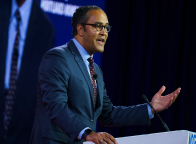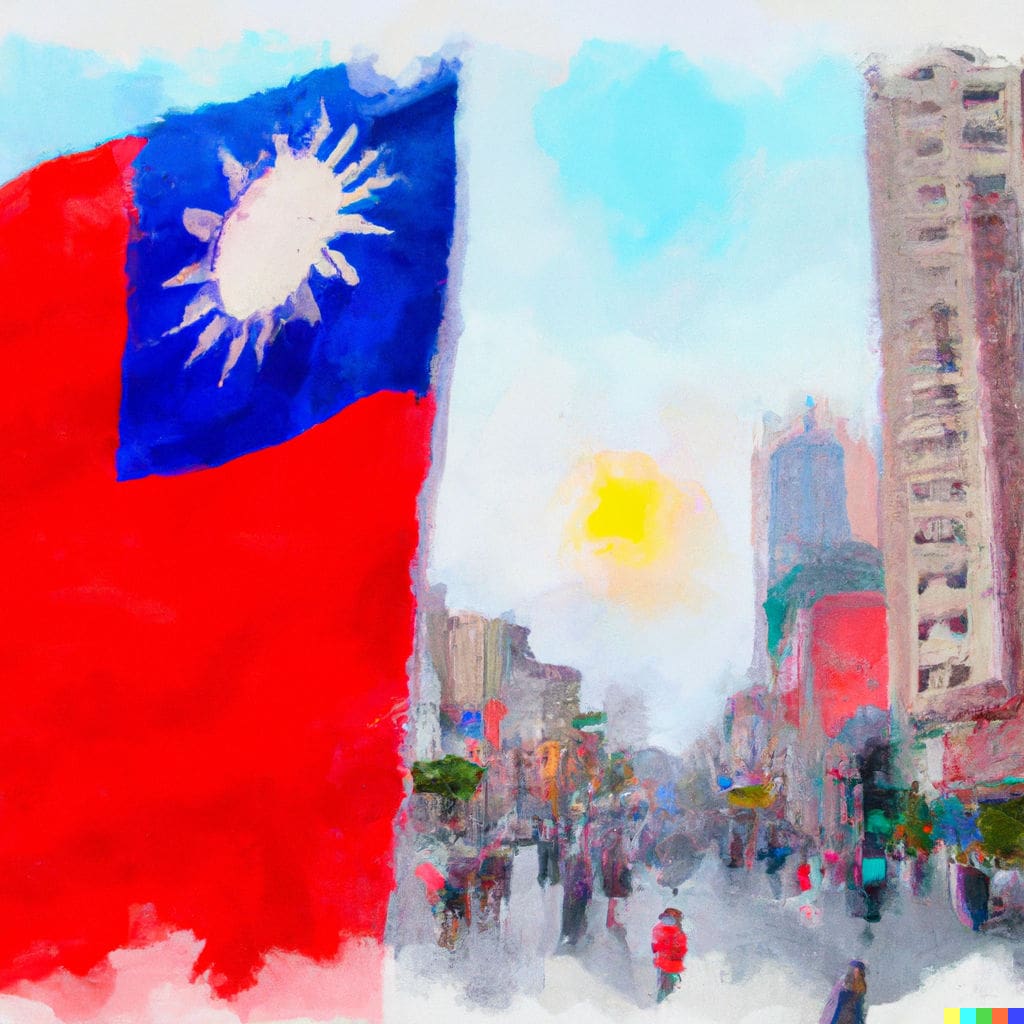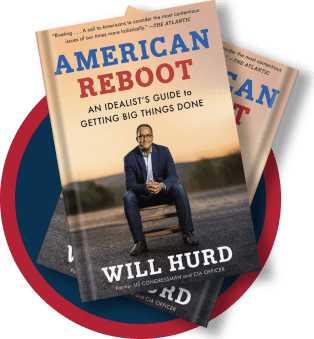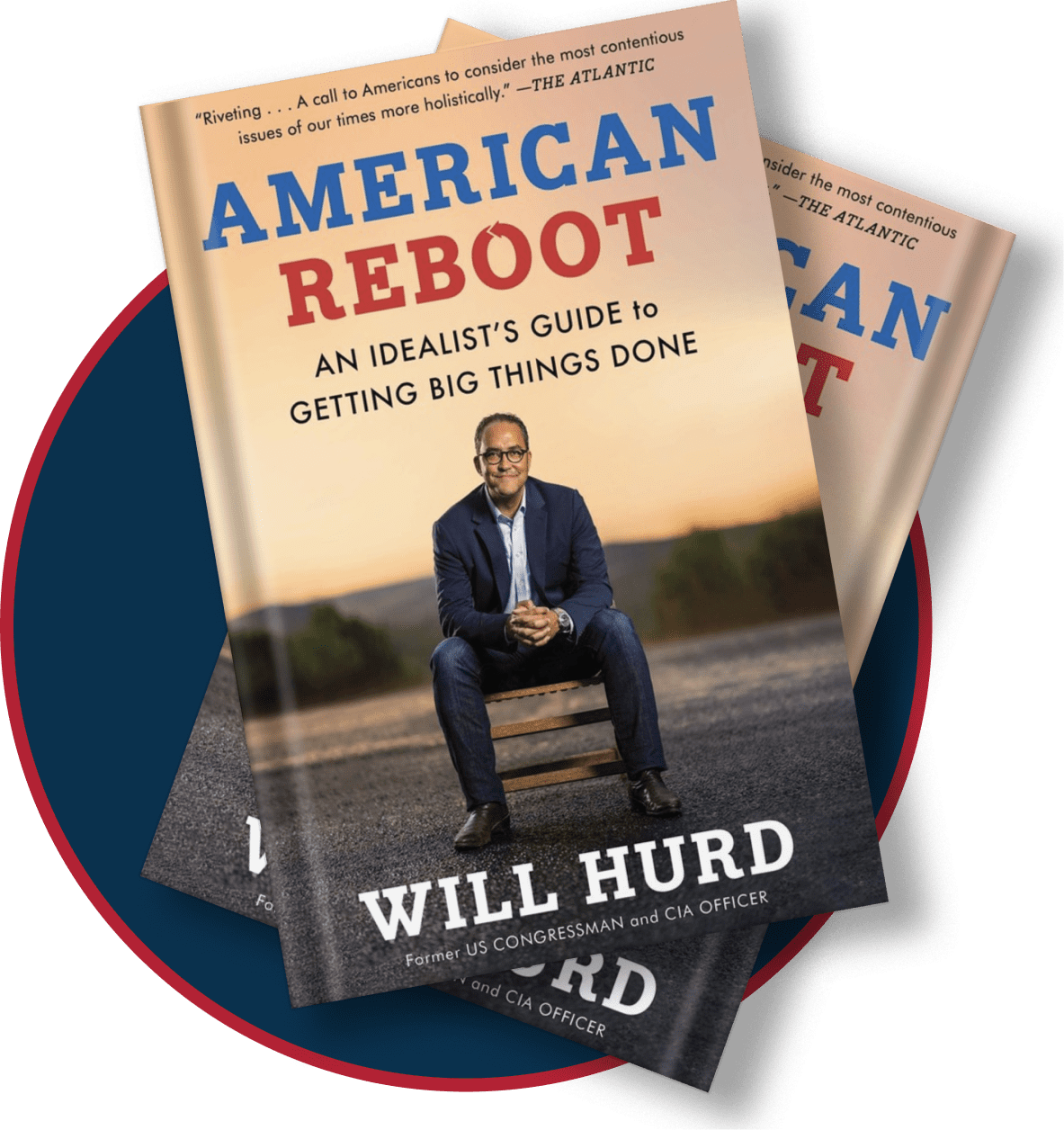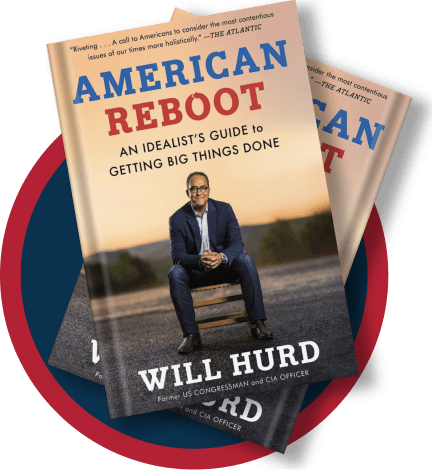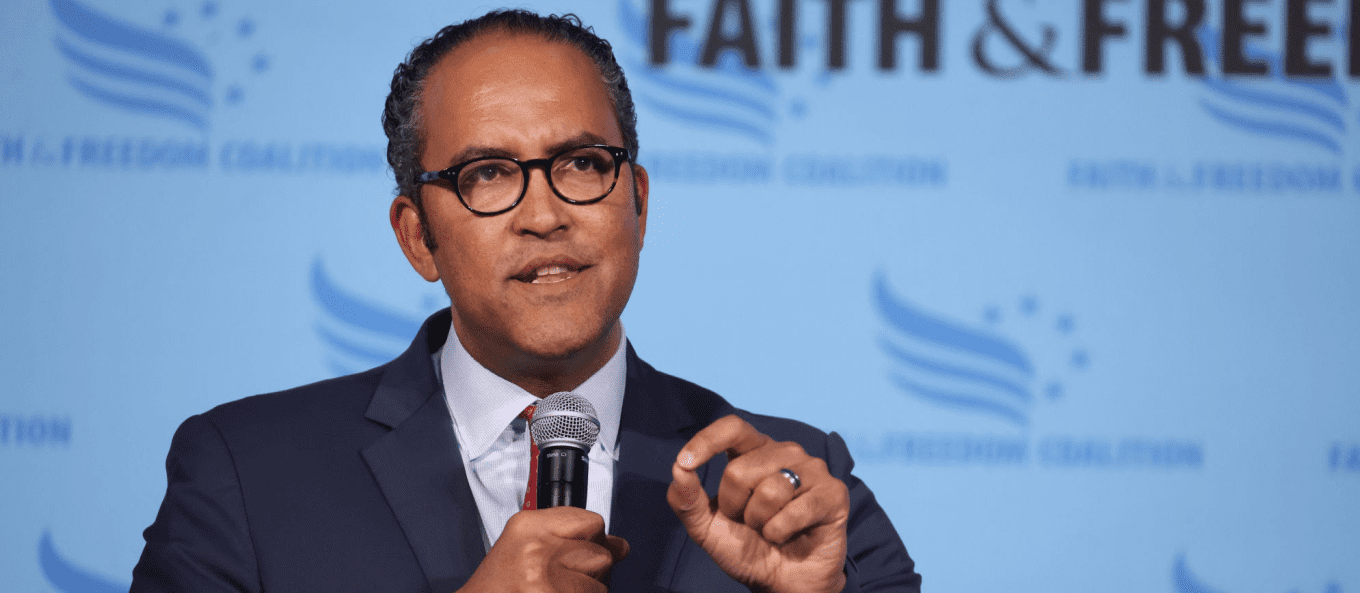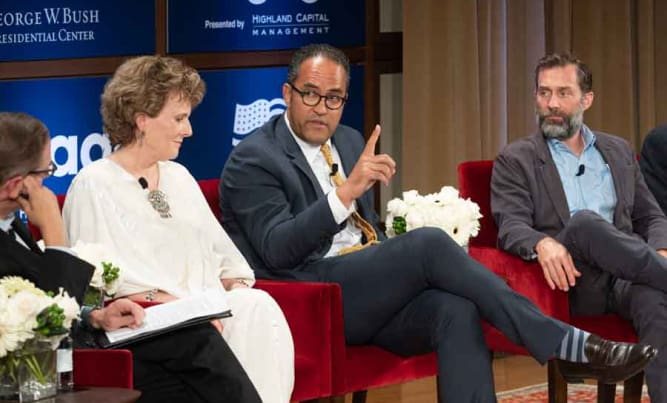DALL-E watercolor of a Taiwanese flag flying in Taipei
9 min read
Yes. China will invade Taiwan. Several assessments by intelligence organizations around the world suggest it will likely happen by the middle of the 2030s. Which means the United States and our allies don’t have much time to ensure their is an alliance in place to help Taiwan be prepared to prevent the Chinese Communist Party from coming across the Taiwan Strait. This is one conflict that could ignite World War 3.
When George Washington wrote his farewell address, finishing his time as president in 1796 after two terms, he warned America to avoid permanent alliances with foreign nations and to rely instead on temporary alliances for emergencies. President Thomas Jefferson doubled down on this guidance in his inaugural address in 1801 when he said the United States should have honest friendship with all nations—entangling alliances with none.
This approach made sense when it took six weeks, rather than seven hours, to cross the Atlantic Ocean and the entire world population was far fewer than that of present-day India. This was excellent advice for a young America in which everyone could have fit into today’s Los Angeles.
The issues facing the world are far more complicated than in our Founding Fathers’ day and even though the global population is eight times larger, we are significantly more connected because of technology. This interconnectedness translates into a reality that foreign policy is not foreign — what happens in places thousands of miles away – like in the Straits of Taiwan – has an impact on our daily lives.
The relationship between China and Taiwan is one of the most important, and least talked about issues affecting America today. Why? Because its future status will determine whether the quality of life in and national security of America declines or improves. Despite the rhetoric coming from leaders in Washington, DC and Beijing, the US and China are locked in a new cold war and whether or not the Chinese invade Taiwan and our reaction to that invasion will determine the winner of this conflict and which power will be the architect of the international order for the rest of the century.
The New Cold War
The People’s Republic of China is trying to replace the United States of America as the sole global superpower. This is not my opinion, this is what the Chinese Communist Party and Chinese President Xi Jinping have said about themselves in English since at least May 2015. This reality needs to drive USA foreign policy
The Chinese Government’s desire to erode our position in the world was a major worry for the Trump administration and it’s an area of concentration for the Biden administration. Every American should be concerned with this New Cold War with the Government of China, because we face a potential future where Mandarin and the yuan, not English and the dollar, dominate international trade.
Whichever country wins this generational defining struggle will not just affect the American economy but will shape a new world order for the rest of the twenty-first century.
The Last Remaking of the Global Order
The U.S. began willingly acting as the leader of the international order in 1941 when we joined the Allies and won World War II, then helped rebuild Europe from the ashes. We didn’t take spoils after that war, but instead gave Europe a helping hand. But we actually became a true global superpower twenty-five years earlier in the middle of World War I.
In 1916, the United States took the mantle of global superpower from the British, when our Gross Domestic Product (GDP), the total value of all the goods and services produced in a country, surpassed theirs for the first time in history.
Since that time, from 1916 through 2020, US GDP increased by a factor of 25 while the British economy only increased by a factor of seven. A similar pattern can describe the economic competition between the US and China, but with the US playing the role of the British.
China’s Rise

In 1980 according to the World Bank, US and China’s GDP were responsible for 25.3% and 1.7% of global GDP respectively. By 2020, the U.S. economy had grown by a factor of 7 making up less of global GDP at 24.7%. Over this same forty-year period, the Chinese economy grew 77 times larger to make up 17.4% of global GDP. The world’s previous global superpower the UK was responsible for just 3.3% of the global economy. Based on current growth trajectories, many economists predict China’s GDP will surpass the U.S. by the late 2020s or early 2030s, if it hasn’t happened already.
While the Chinese Communist Party (CCP) would like the world to view this transition as inevitable and imminent, the truth is that serious growth pains like debt crisis, demographics, and international pressure could prevent China from taking the top spot.
The CCP Plan
To surpass the US as a global superpower the government of China has been pursuing a plan of providing development aid to well over 139 countries around the world via a program named the Belt & Road Initiative, to ensure available markets for Chinese products. They are also working to become the global leader in several advanced technologies that our future will be built upon; technologies like 5G, artificial intelligence, biotechnology, and quantum computing. This is where Taiwan comes in.
What do all these technologies have in common? Semiconductors — the building blocks of the information revolution. If the People’s Republic of China were to cross the Taiwan Strait to eliminate and subjugate the Taiwanese people, then Chinese President Xi Jinping would capture an additional 64% of the world’s manufacturing capacity of semiconductors. Understand the broader implications of the U.S.-Taiwan relationship in the context of U.S. foreign policy here.
Supply Chains Will Get Worse
If Americans and the international community are concerned now with the rising costs of everyday products and dealing with the constant impacts to supply chains, then all these things will be made worse by a Chinese invasion of Taiwan.
An invasion of Taiwan would impact the ability of Americans to get phones, computers, cars, and domestic appliances like refrigerators. This would affect the American economy’s role as the most important economy in the world, impacting the purchasing power of Americans, our retirement accounts, and our kids’ ability to get good-paying jobs. It’s hard to imagine how an island nation of 24 million people that is almost 8,000 miles away from us and a place most Americans have never visited could do all that.
The History of Taiwan is Complicated

Right to Left, Top to Bottom: Mao Zedong, Jimmy Carter, Ronald Reagan, Chiang Kai-Shek
In 1895, the island of Taiwan was ceded to the Empire of Japan by the Chinese Qing Dynasty after the First Sino-Japanese War. A little over forty years later in 1937, the Japanese invaded mainland China again where the Republic of China (ROC) government was led by Nationalist leader Chiang Kai-Shek. During this occupation, Japan controlled roughly 25 percent of China’s land and more than a third of its entire population
ROC vs. PRC
Following the Japanese defeat in World War II, Taiwan was given back to the official government of China—the ROC. By 1949, after years of civil war between the government and communists, Chiang’s ROC was pushed to the island province of Taiwan by Mao Zedong, the leader of Communist forces, and Mao created the People’s Republic of China (PRC).
Until the 1970s, the US recognized the ROC as the true government of China. However, in 1971 during the presidency of Richard Nixon, the United Nations sat the PRC as the official representative of China and expelled the ROC representative.
Acknowledge Rather Than Recognize
In 1979, during President Jimmy Carter’s administration, the U.S. government recognized the PRC as the sole legal government of China; but the U.S. did not recognize Chinese sovereignty over Taiwan (the preferred official name for the island government after being expelled from the United Nations).
The Carter Administration did acknowledge, rather than recognize, the Chinese position that Taiwan was part of China. In response to the Carter Administration’s moves, Congress passed the Taiwan Relations Act in 1979 to protect American security and commercial interests in Taiwan. This legislation provided a framework for continued relations in the absence of official diplomatic ties.
One China Policy
In 1982 under Ronald Reagan, the United States government stated it had no intention of pursuing a policy of two Chinas. This “one China” position where the U.S. recognizes the PRC as the sole government of China but only acknowledges the Chinese position that Taiwan is part of China, has been America’s official position since the ’80s and has allowed the U.S. to maintain formal relationships with the PRC and unofficial relations with Taiwan.
While Taiwan is the eleventh largest trading partner of the U.S. and the twenty-second largest economy, less than 10 countries have recognized it as a sovereign nation, and the United States, Taiwan’s most important ally, is not part of that group.
Isolationism is Not a Strategy

Marshall Plan aid in West Berlin (U.S. National Archives)
In the early 20th Century when we would take the position as a global superpower that we have now held for over 100 years, our economics was the pre-eminent medium of American power, and military force was a by-product. Our military and diplomatic power were used to ensure equality of access for American goods and capital around the world. American economic might would be the decisive factor in shaping a global world order where the U.S. and the Europe we helped rebuild after World War II would represent more than half of global GDP.
Now, we still need to ensure access for American goods and capital, but we also need to ensure access to the component elements of the American global supply chain. The global system is more interconnected than at any time in human history, and American economic security requires us to have influence in many places around the world.
Our Enemies Should Fear Us, and Our Friends Should Love Us
If America wishes to continue to benefit from an international order that we built with our allies and have led for over 100 years, then we are going to need to ensure that our military stays the pre-eminent guarantor of global stability and that our economic power is used to shape a world order that is more just, more free, and more prosperous than the one that exists today. We cannot do this by retreating into isolationism; we need to be tough with tough guys and nice with nice guys. We must use our soft power to help countries positively contribute to this global order that has uplifted humanity, and we must be willing to use our hard power when this stability is threatened.
Being tough means delivering consequences in response to negative behavior that goes against the international order. When China agreed to join the World Trade Organization, they agreed to follow a certain set of rules. So when China breaks the rules, there should be consequences. When Russia violates the Law of War and invades Ukraine, then there should be consequences. If there are no consequences to negative behavior, then negative behavior will continue.
At the same time, we should be strengthening alliances with our friends, building on existing coalitions, and making new alliances when needed—be nice with nice guys. Military power combined with soft power, economic and development aid, can improve the lives of people around the world. To be tough with tough guys or nice with nice guys, we need a clear understanding of who are our allies and who are our adversaries and we need to be ready for future conflicts.
The Leadership Race Over Advanced Technology
Beginning two million years ago when our distant relatives Homo habilis hammered out stone tools, technology has been changing every aspect of life on Earth. A critical factor in America’s economic and military success has been the achievement of global leadership in advanced technology; however, the U.S. and our allies are at our most tenuous position in this area since World War II.
In this Fourth Industrial Revolution we are currently in, where technological change over the next thirty years will make the last thirty years look insignificant, we are dealing with a dramatically shifting global landscape where the Chinese government is trying to rapidly erode American technological advantages through legal and illegal means.
First Mover Advantage
Powerful technologies like 5G, artificial intelligence and bioengineering are going to become ubiquitous throughout our society just like laptop computers and smartphones. These tools are so powerful that someone will become a dominant player in a particle niche.
VHS beat out Betamax in the battle over video cassette formats. Ethernet beat out Token-Ring in how we access the internet from our homes. Now, GSM beat out CDMA over the technology in our cell phones. There will be winners and losers in future technologies.
These technologies have the capability to misinform populations, extend authoritarian grip over civil society, and widen the equity divide within disadvantaged communities. Who designs them matters and the building blocks of all these technologies are semiconductors.
Made in USA?
Some of the best chip companies in the world are American companies or companies based in Allied nations, but most of their products are manufactured outside the U.S. These American companies are taking steps to improve production in the continental United States but building the kinds of facilities, training the necessary workforce and creating new industrial level supply chains takes years.
Most intelligence and military analysts believe that China will move to invade Taiwan by the 2030s, which means we lack the time to replicate in the U.S. the manufacturing capacity of semiconductors that exists in Taiwan today.
The Bottom Line
China is not going to give up its claim on Taiwan without a fight. China will invade Taiwan, which could cause World War 3 The island has been part of Chinese territory for centuries, and the Chinese government has made it clear that it will use military force if necessary to reunify Taiwan with the mainland.
To prevent an invasion of Taiwan, the Taiwanese must get to a point where it is so clear they are capable of winning a fight that China decides against using violence to get its way. The United States should continue to support Taiwan’s defense forces to close the performance gap between them and the People’s Liberation Army. It’s also time for American leaders to transition from a position of strategic ambiguity to a firm clear declaration that we will support Taiwan in their forceful resistance to an invasion. We are already entangled with Taiwan and to act any other way would be against our interests.
If we recognize we are already in a new cold war with the Chinese government, not be afraid of Taiwan’s complicated history, understand that isolationism is not a strategy, and commit to winning the leadership race of advanced technology, then we will do for another century what we have done for the last century; improve the quality of life for all Americans and uplift humanity.
First time reading? If you want rational takes on foreign policy, politics and technology then sign up below for “The Brief.” It’s a twice a month email on things that aren’t being discussed but should – all in 5 minutes or less. You can register below.

